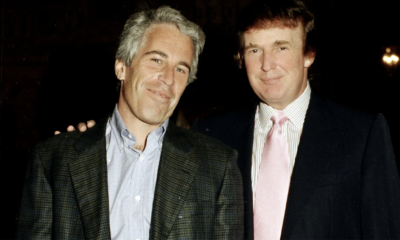News
Uttar Pradesh’s New Social Media Guidelines: A Controversial Move or Necessary Regulation?
In a bold and controversial move, the Uttar Pradesh government has introduced a new social media policy that dramatically reshapes the legal landscape for online activity. The policy, approved by the state Cabinet on Tuesday, lays out stringent penalties for what it terms “anti-national content,” with potential sentences ranging from three years of imprisonment to life behind bars. This development raises significant questions about the balance between security and freedom of expression in a rapidly evolving digital world.
Understanding the New Policy
The new guidelines, applicable across popular platforms like Facebook, X (formerly Twitter), Instagram, and YouTube, are designed to clamp down on anti-national social media posts. These offences will now attract severe punishment, with the government signalling its intention to target content that challenges state interests or national unity aggressively.
Previously, offences of this nature were dealt with under the broader frameworks of the Information Technology (IT) Act, specifically Sections 66E and 66F, which cover privacy violations and cyberterrorism. The new policy goes further, criminalizing a more comprehensive range of activities and prescribing more severe penalties, including life imprisonment for repeat offenders.
Obscenity and Defamation: More Legal Headaches?
In addition to its focus on anti-national content, the policy also outlines penalties for posting obscene or defamatory material online. These posts could now lead to criminal defamation charges, adding another layer of complexity to the already contentious legal framework governing digital behaviour. By expanding its scope to include these issues, the policy aims to curb the misuse of digital platforms and potentially curtail online freedom in an era where the boundaries of free speech are hotly debated.
Financial Oversight of Influencers and Creators
Interestingly, the new guidelines also set stringent payment caps for social media influencers and content creators. The monthly payment ceilings for influencers are capped at ₹5 lakh for X, ₹4 lakh for Facebook, and ₹3 lakh for Instagram. On YouTube, the limits range from ₹8 lakh for longer videos to ₹4 lakh for shorter content like shorts and podcasts. The state has enlisted a digital agency, ‘V-Form,’ to manage these payments and showcase various types of digital content.
While some may view these financial restrictions as a way to curb misinformation and control content quality, critics argue they represent an unnecessary intrusion into the digital economy, potentially stifling creativity and limiting the growth of India’s burgeoning influencer industry.
A Double-Edged Sword?
Proponents argue that the new policy is essential for safeguarding national security at a time when misinformation, fake news, and incendiary content can spread like wildfire online. Given India’s geopolitical tensions and internal security challenges, they assert that the state is well within its rights to regulate social media content to protect public order.
However, detractors warn that the policy could be used to suppress dissent and stifle legitimate political discourse. By giving the government sweeping authority to determine what constitutes “anti-national” content, there is a risk that these measures could target political opponents, activists, journalists, and others who challenge the status quo.
The Broader Implications for Digital Democracy
This policy introduces critical concerns regarding privacy and surveillance. In an age where digital privacy is increasingly under threat, policies that grant the state more power over online content could pave the way for increased surveillance, raising alarm bells about potential abuse of power. Additionally, the broad scope of terms such as “anti-national” leaves much to interpretation, which can be manipulated to serve political ends.
Introducing the new social media guidelines in Uttar Pradesh is a stark reminder of the complex balancing act between freedom of expression and state security. As debates over the policy unfold, the coming months will be crucial in determining whether these new measures are necessary to ensure national security or a dangerous overreach that threatens India’s democratic ethos.
Ultimately, how this policy is implemented will determine its impact. Will it achieve its intended goal of fostering a safer online environment, or will it create more fear and self-censorship among citizens who feel their online voices are being silenced? Only time will tell.








































